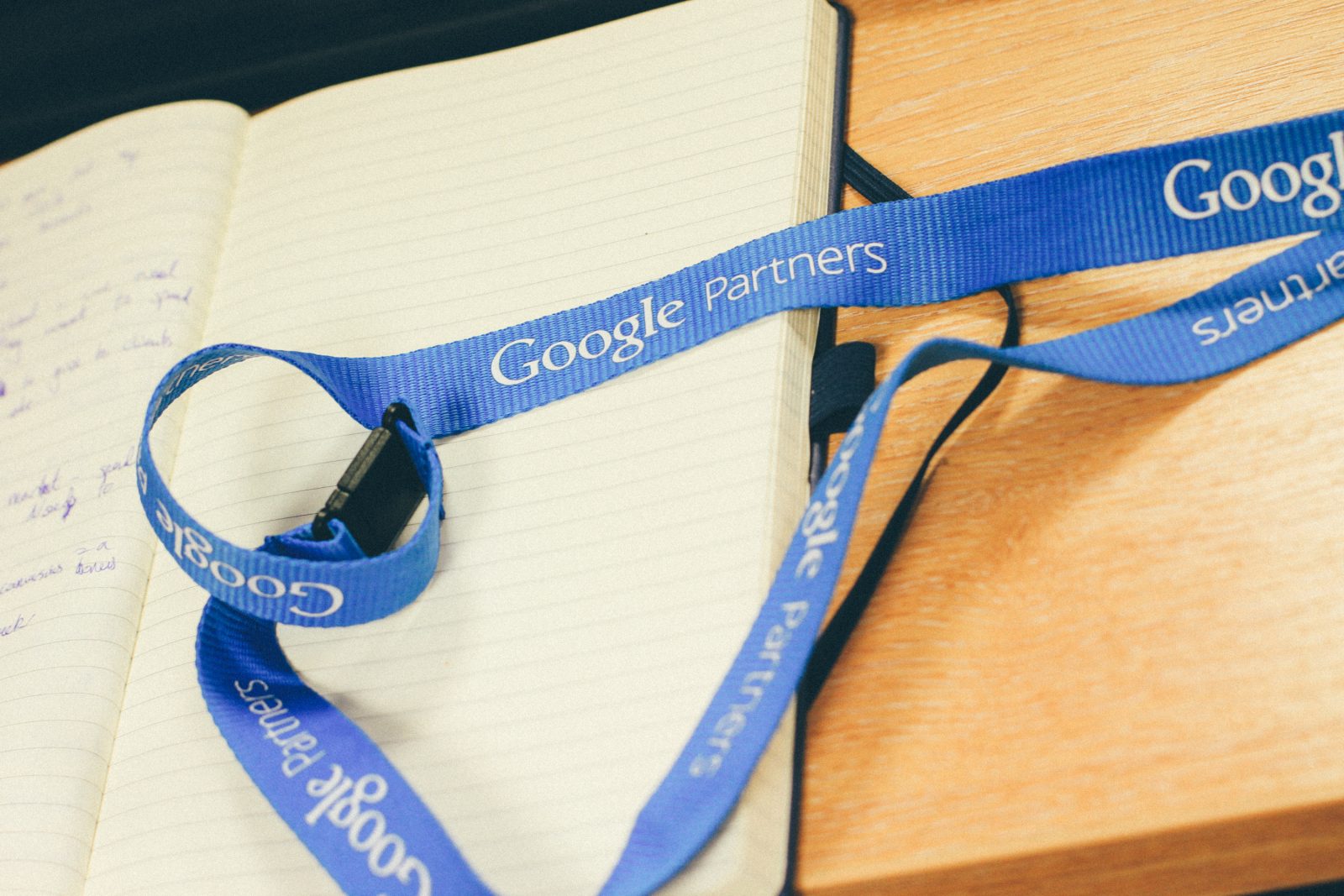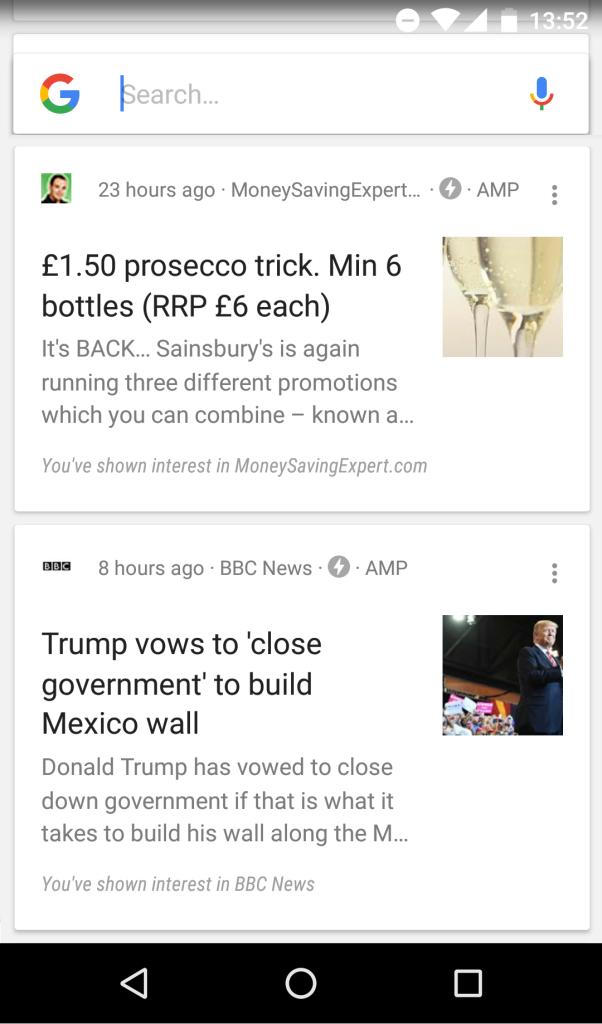Back
What Google’s new homepage might mean for SEO

Google is set to have its first major overhaul of its homepage since 1996, radically changing how you use the number one search engine on the web, so what does this mean for SEO? The introduction of Google’s interest and news-based feed will bring more personalised content and local news based on the user’s location.
Local or ‘of interest’ news articles, weather reports and sports results will appear on the front page of Google. On mobile, these personalised news stories will pop up as ‘card’ notifications. This is a huge boost for traditional publishers and the PR industry – as brands who feature in top trending stories could appear on Google or on mobile lock screens before a search has even taken place.
Why is Google introducing the new homepage?
Google’s aim is to keep you on Google, this is simply so they can make more advertising revenue. It’s in their best interests to work out what information you want to know and to give it to you in a simple and concise way to stop you clicking onto another website.
How does Google know what I like?
Google knows what you search for, when and how. It collects this information and tailors your search results to best suit you. Google is using this knowledge of you to suggest articles that you may like but users still have the option to tailor the content that appears in their feed. This means that Google will be offering greater personalisation opportunities for the user alongside helping publishers get their content in front of a relevant audience.
Google will firstly base its cards on your own personal searches, gathered over time from a range of different categories. Have a look now, and see what we mean: search for ‘Google Ad Settings’ and see what information they have collected about you. Search history, your behaviour (consistently ignoring a website, or picking the same one), your location – all these will affect your results.

Hasn’t Google tried to personalise its homepage before?
Yes, Google previously launched iGoogle, which was removed in 2013. However, iGoogle was only shown to those who were logged in and had chosen iGoogle, rather than the Google homepage. On the new Google homepage, the information will be provided based on the application of “advanced machine-learning algorithms” to users search habits.
Is Google trying to be a social network?
No, Google isn’t trying to become a social media platform – not after the failure of Google+. It is simply featuring websites and articles on the homepage while offering a more customised view for users in order to keep them on Google. Google is offering you anticipated results before you even search for them, which is similar to social media as the results are already on the webpage, making it easier for the user to find the information.
What does all this mean for SEO and Google
This is a major development for Google but it also brings many challenges and opportunities for businesses. Therefore it is essential to utilize and adapt their SEO strategy to fully benefit from this new layout. It will give the user a wide range of different content and a more customised way to search. PR and journalists will benefit from having a much greater exposure than before and businesses can promote their offering to a much wider audience who are relevant to them.
Is SEO dead?
SEO is still important – but the search may be affected. There will be a period where business will be looking for ways of getting on the new Google homepage. There may also be a small decrease of overall total searches. This may be due to people being satisfied by their personalised feed, decreasing the amount of exposure for those not featured on the homepage. It will also greatly increase the power of large brands who will easily feature on the new update, making it harder for smaller business to compete and gain exposure.
To find out how we can help you make the most of Google’s new homepage and SEO, feel free to call a member of our team on 01934808132 or send us a message online today.
This entry was posted in Digital Marketing, Marketing Strategy





